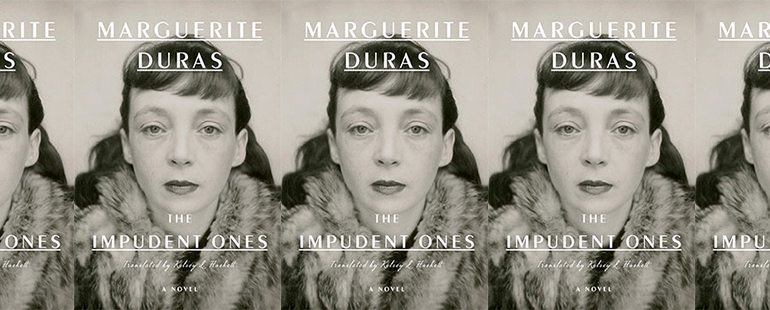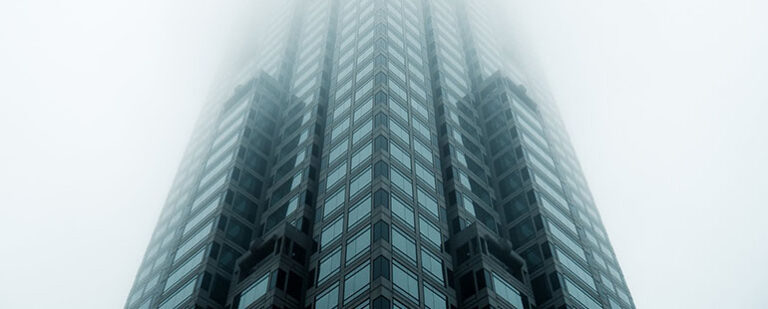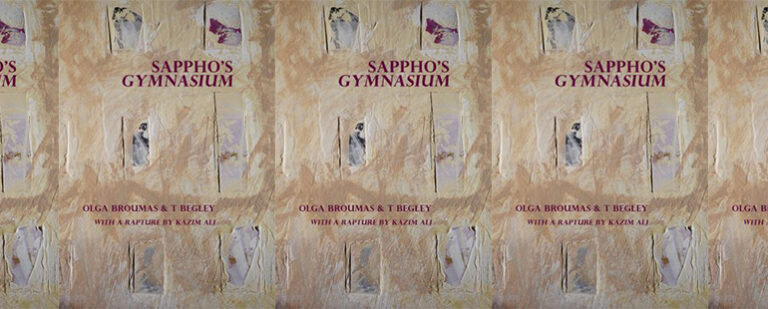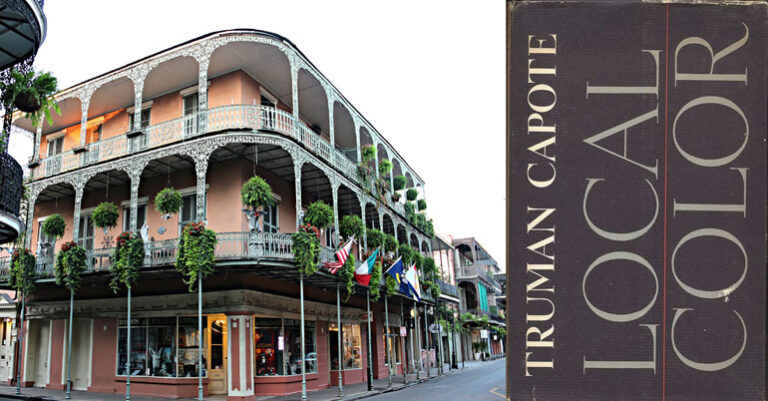The Foreboding Landscape in The Impudent Ones

In her debut novel, The Impudent Ones (1943), Marguerite Duras builds a visceral sense of foreboding through the beautiful and unnerving landscapes in the life of 20-year-old Maud Grant, who lives in her family home along with her forgettable younger half-brother, Henry; her 40-year-old brother, Jacques; their mother; and her negligible stepfather. Set in the early 1930s, the novel, which was recently translated from the original French into English, for the first time, by Kelsey L. Haskett, begins: “Maud opened the window and the distant sounds of the valley filled the room. The sun was setting. It left in its wake massive clouds that clustered together and rushed blindly toward a chasm of light.” This image pairs an out of control closing—a setting sun—with clouds that “rush . . . blindly.” Duras begins a pattern here of joining a positive descriptor with a grim one, fleeting light darkened by a chasm. Maud says that “the air, brimming with a fine mist, appeared thick and murky, like water.” Again, Duras shifts from light to dark in the first of many, often dark, similes. When Maud closes the window, “the humming of the valley suddenly stopped, as if she had closed the sluice gate of a river.” Another hallmark of the novel: suddenness—emotions flashing between two poles, or a transformation before one’s eyes. These first images capture a major theme of the novel: the way Maud is both captivated by the landscape, but often swiftly shut off from it.
Duras regularly uses the landscape to mirror the events of the profoundly unhappy and dysfunctional Grant-Taneran family. Maud frequently describes Jacques, the oppressive king of the household, as mean and lazy, an unemployed delinquent known for being “a nasty fellow” who torments women and otherwise behaves badly. Both Jacques and Mrs. Taneran are in denial of how awful he is, and Maud observes that his delusional sense of usefulness to his family is what allows him to stand at its head, despite “the total inanity of the existence he had led for twenty years.” Though they may bend to him, the family does find Jacques’ uncontrollable sobbing after the death of his wife of one year—a marriage the family viewed as a sham—melodramatic and distasteful. Maud feels “irresistible disgust churn . . . inside her, but,” importantly, “her body [holds] it in well, like the solid banks of a torrential stream.” Her ability to uphold the cultural standard of emotional repression parallels how she closed the window like closing a river’s sluice gate. In both instances, Maud is the agent that controls the flow of water. She appears in control, but her power is tenuous—the sluice gates can fail; the banks can overflow. As the torrent of her reckless brother’s grief rages, Maud similarly undresses “in the dark, quickly and without making a sound, so that no one would recall her forgotten existence, as insignificant as a shipwreck in the middle of the sea.” Duras often uses water similes with Maud, and these three signal an impending threat. Despite her brother’s awfulness, Maud, a young woman, is the least favored child; her value is linked to her virginity, which can be given or taken quickly.
Mrs. Taneran decides to take the family to Uderan, their country estate in southwest France. The morning of their departure, the “air already carried the odor of hot tarmac and dust. The smell made one’s nose tingle and put winter far behind. Summer was coming early.” Spring, the season of new life, is passed over, and instead there’s “summer’s nonchalance, expressing its opulence in the swollen foliage, the intense, impenetrable heat, and the fallen fruit that covered the paths with its freshly rotting flesh.” There’s a sinister and foreboding grotesqueness in this description. The landscape the family arrives to is dominated by the Dior River, which is introduced through John Pecresse, the only son of the neighboring family that seeks to yoke him to Maud, who is the last to know of this plan. Maud “sense[s] the land, which rose in tiers—the fields, the farms, the villages, and the Dior—as if they were part of a permanent, harmonious order, guaranteed to outlast the humans, who only came and went in this small corner of the world.” She observes the Dior “murmuring with fresh and silky sounds.” The Dior here seems comforting and unadulterated to Maud. John, however, worries about Maud’s arrival on his estate, where her family is staying because Uderan has fallen into disrepair. “What effect does it have on her to be here, at my place, on the porch of the house from which one can see, far off, at least half of my lands bordering on Uderan and the Dior?” he wonders. His first thoughts are of the Taneran’s land—which he wants to possess—and the river he views as essential to his own landowner status. What else to do but possess the girl, too?
While the rest of the family stays on at the Pecresses, Maud returns to the one inhabitable room in Uderan. On her solitary walk to the overgrown estate, “[t]he silence, which would have made anyone else flee, dense and mysterious as it was, enchanted her instead. Around her, the huge box hedges bristled, the pine trees took on gigantic proportions, and their summits wept gently, even though their moaning spread no sadness.” The foliage surrounding Maud feels both protective and ominous; these plants, usually so carefully sculpted, have been left untended—but what will happen to them when the land’s owners return? Silence, too, reigns in the novel, though it is as fickle as the characters’ moods—here it’s broken by Maud’s heartbeat, which “sometimes [got] lost in the night, depending on the whims of the wind.” Maud mixes with the landscape until her heartbeat is overtaken by the sound of hoofbeats, coming from the horse of George Durieux, her future lover and, like John, a philanderer. After just this short walk, Maud thus goes from the clutches of John and Jacques to another man who will come to possess her. The next morning, the breeze that awakens her makes “the curtains shudder. It had swept the great depths of the valley, carrying with it, as a result, the scent of bitter algae and decayed leaves.” The shudder could be her own.
A turning point in the novel comes when Maud glimpses a dead woman floating down the Dior. “Just before the river’s bend, by the day’s last glimmer, Maud made out two black braids dragging along besides the corpse.” The corpse belongs to John’s lover, who is never named. As Maud continues walking down the road past this sight, she is startled by her mother, who informs her that “that crazy Pecresse woman” has asked for Maud’s hand in marriage to her son. Maud is left reeling. That evening, she goes to Barque’s, the bar her brothers and most men visit each evening, where she sees Jacques, who looks especially agitated. Maud compares him to “a wild animal that stalks the forest, incessantly on the lookout for danger,” an image that paints her brother as a feral predator. John has implied that Jacques is responsible for the woman’s death, but Maud is quick to defend her brother: “‘It’s cowardly not to recognize that you had dropped her a long time ago,’” she says. When a crowd comes in and announces that they’ve found the woman’s body, however, Maud sees on her brother a “look of satisfaction, discreet but obvious”; though she realizes that her brother is a monster, she keeps silent.
Not long after, the Tanerans “set out through the old prune orchards, and the vines, caught up in a sort of vegetal madness, sent out long shoots on every side.” A farm girl they pass smiles “in a way that expressed so vulgarly a recent involvement” with Henry, who “used the pretext of a flock of birds flying high in the sunlight sky to hide his embarrassment.” Neither Henry’s sexual exploits nor Jacques’ cruelty seem to touch the family—they proceeds through life as they do through the “vegetal madness”: unfazed. Having witnessed her brother’s indiscretion, however, the tides have turned, finally, in Maud’s favor: “[w]ithout admitting it to himself, Jacques feared his sister because he suspected her to be his most indomitable enemy.” He fears she’ll reveal what he’s done to their mother, and holds back from “reproach[ing] her for monopolizing George Durieux . . . because Jacques wasn’t sure if his sister was George’s mistress.” Through her chastity, Maud holds power over her brother.
Later, Maud “inhale[s] the perfume of her regained solitude, which blended with the pungent fragrance of the night.” For once, this description is purely pleasant—but it’s fleeting: Maud is walking to George’s house, and once there, “[s]he believe[s] she was no longer bringing her love to George, but avowing a base and shameful sentiment.” Despite how flagrantly the men in her life sleep around with impunity, it’s apparent that this behavior in a woman is unacceptable. To consummate the affair, Maud must thus “detach herself from her will, like a leaf in the wind being torn away from the tree and allowing itself to be carried off, accomplishing finally its desire to die.” After having sex, Maud finds that “she [is] no longer ashamed of” her naked body, just at the moment when she is expected to be. This shame appears, however, when she is met with silence the next afternoon by her family and the Pecresses—“the Pecresse woman” saw her leaving George’s.
With the single act of having sex with George, Maud is stripped of her power, or at least the illusion of it, and she feels “invaded by a sense of shame that totally crushed her.” She has “no desire to see [George] again, sensing how useless it would be” since “[h]is complete ignorance of what she was going through right now diminished him in her eyes.” Maud stands again at an open window, and this time the sudden closing of it prompts “the picture of her lover [to] disappear.” Both the landscape and her lover have been taken from her: the estate must now be sold to deliver the family from the shame of what Maud has done. At the dinner table, the Tanerans’ and Pecresses’ silence rises “like water in a sinking boat.” Again, Maud figuratively experiences a watery demise.
Rather than further endure the “insults . . . still being hurled from above,” however, Maud flees, stopping near the Dior where she hears “the Pecresse woman . . . yell[ing] her name with the loud, drawling accent she had when she called the dogs.” Maud dips her hand “in the water current, making a frail and bubbling melody.” There’s a glimmer of pleasantness in Duras’ narration until “the water [is] so cold that after a moment Maud could no longer feel her fingers . . . In the silence that reigned near the river, she heard the sound of her own sobbing.” Maud becomes disembodied from the body that so recently felt pleasure but is now racked with sobs, and she finds she cannot “warm herself in this flowing rift of the Dior”; “the cold penetrated her all of a sudden and made her shiver.” Having been penetrated, Maud is now split. In the most explicit use of landscape in the novel, Duras writes: “The Dior was running beside [Maud], young and virile, against its faithful banks.” This description mirrors Maud’s experience of men acting with impunity while she, as a woman, is punished after a single sexual encounter out of wedlock. Even George quickly becomes “overwhelmed by disillusionment” when he thinks of Maud, and when he sees her trying to get into Uderan, which the family locked against her, “the very appearance of her face seemed ruined . . . the big dirty stain that soiled her damp dress all made her unrecognizable.” While her dress is literally stained from the Dior’s banks, she’s also now considered a ruined woman, stained—even in her lover’s eyes—by her transgression.
Maud goes to stay at George’s—her only option—and from his home, “the landscape rose in a broad, slow movement right up to the crest of Uderan, and the house looked as if it were staggering under the assault of this wave of land.” Shut off from the landscape, she misses her long walks with “the strong odor of the land and water and of the marsh where the waste of summer was already rotting.” When George catches her outside, he speaks roughly to her and accuses her of “making off again.” At home, “[s]he let[s] herself go with the natural, animal-like feebleness of the female who lends herself to male desire, even when she doesn’t feel it spontaneously herself.” Having lost the ability to hold her head high, as a submissive female animal Maud foils her predatory, wild animal brother.
Several weeks later, her mother “abruptly” remembers her and comes at dawn to claim Maud, who doesn’t recognize the landscape right away in this new light. Maud, too, has transformed, having lost her virginity, been publicly shamed, and—even more damning—become pregnant. Mrs. Taneran has come to marry Maud off to John as part of the real estate deal she made with the Pecresses. Maud’s pregnancy, though, eliminates this option and solidifies her exile from the family, prompting her return to George. “In a family that has had no previous incident as shameful as this, nothing else could explain such a catastrophe,” Mrs. Taneran writes to George in her letter informing him of Maud’s “sad return.” “Warm her with the approach of fall, when even nature is sad,” she adds, bringing Duras’ exploration of the seasons full circle by calling attention to the coming season of death and placing the onus on George to remind—or perhaps reprimand—Maud with her full womb.
In the wake of her shaming, Maud thinks “of nothing and no one except the agonizing abyss of the day into which she was slowly plunging, and which seemed to close in over her like the sea over a living shipwreck, too slow to die or reach the bottom.” Rejected from her family and devoid of options, this is Maud’s new trajectory. She contemplates her misfortune, which “stretche[s] out around her, much more imposingly now than when it was right then and there—a vast region over which she had reigned.” Any agency Maud had, she realizes, is long gone. Even her body is no longer her own. Returning to George, “[h]er cheerfulness grate[s] in the cold wind,” a closing image of a dream that could have been but that is undercut by the harshness of reality. The woman is always at fault, and the man always wins.
This piece was originally published on July 15, 2021.


